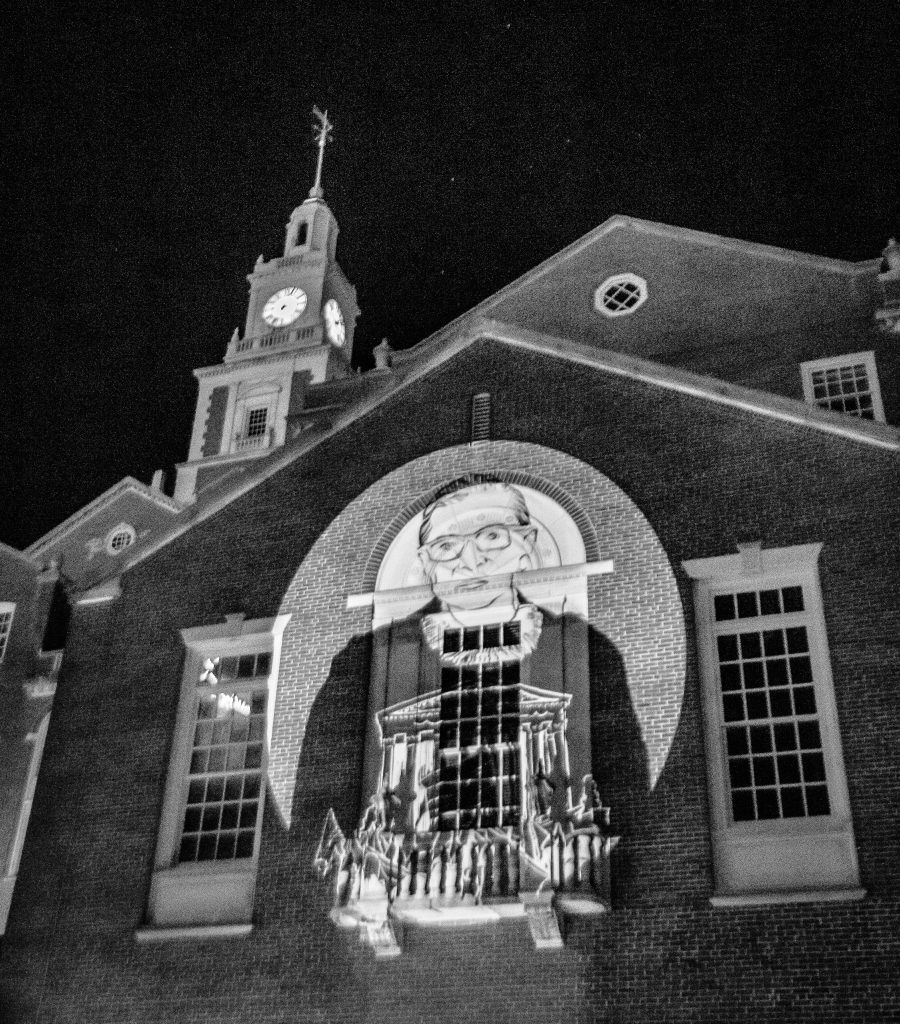
If you live in Providence, it may seem as though we’re always finding a reason to mourn. For what’s happening across the country, here in the state, and internally as we all grapple with a pandemic that is six months in with no signs of letting up.
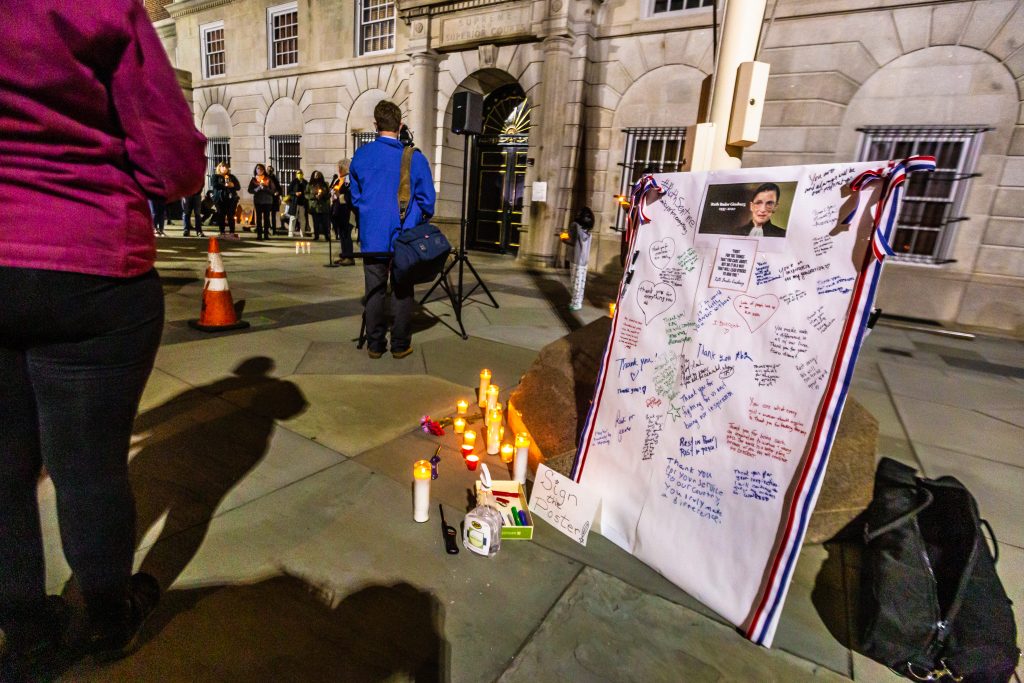
On Friday, we found another reason to mourn, as Justice Ruth Bader Ginsburg — a pioneer for women’s rights and someone who found greater fame and admiration as her life went on, becoming thought of as a protector for the left — died. A documentary about her life and a biopic only further cemented her as one of the most famous judges to ever sit on the highest court in the land. Her death felt like a seminal moment in a year that has already had what feels like an inordinate amount of loss.
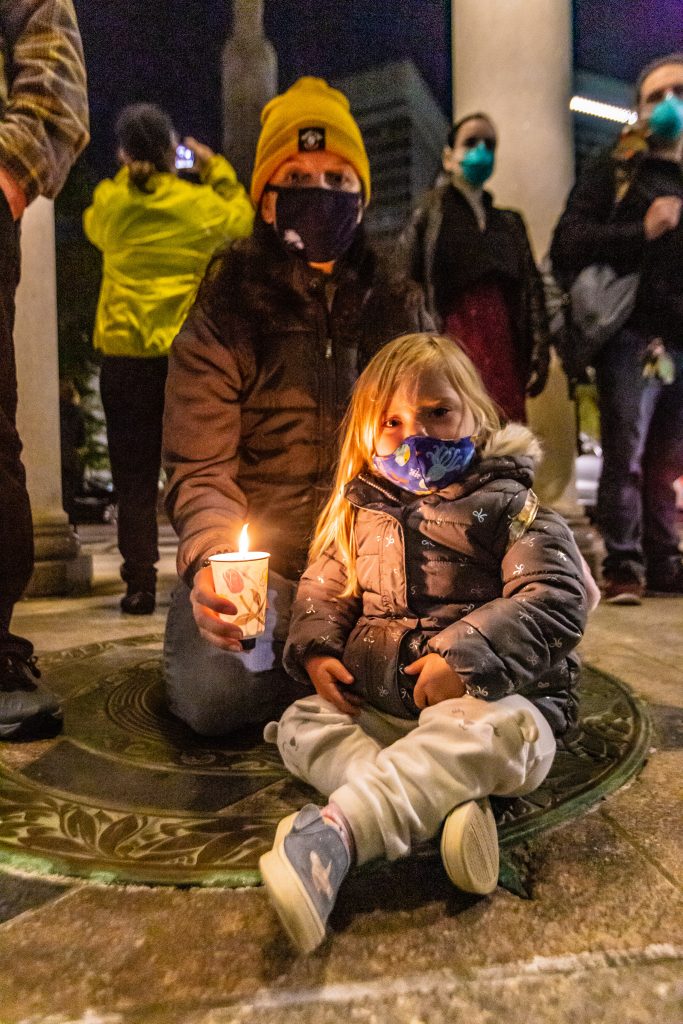
Within hours of her death, both sides of the political spectrum already were discussing a potential replacement and how to block such a thing from happening until after the election. Even the Justice’s last public statement was regarding what she’d like to see happen after her death. While it’s true that politics rarely honors history, particularly when mourning is called for, the fervor that erupted after Justice Ginsburg’s death seemed especially disrespectful.
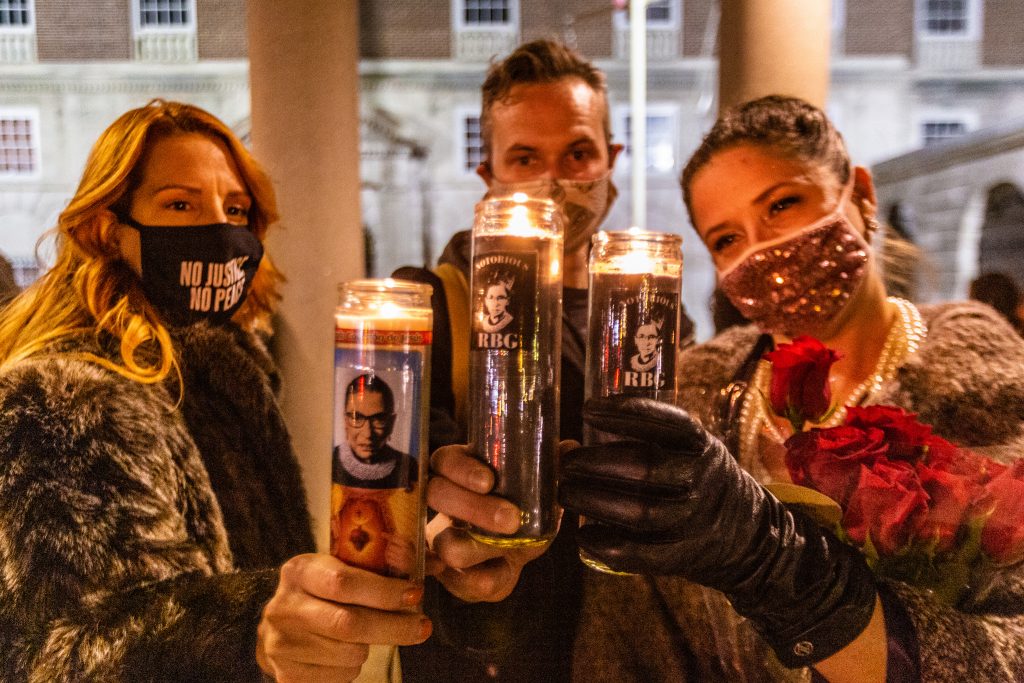
That’s why it was heartening to see a moment of reflection for her, even if it is another moment when we stand together with hearts that are hurting and the growing fear of uncertainty seemingly expanding beyond our control.
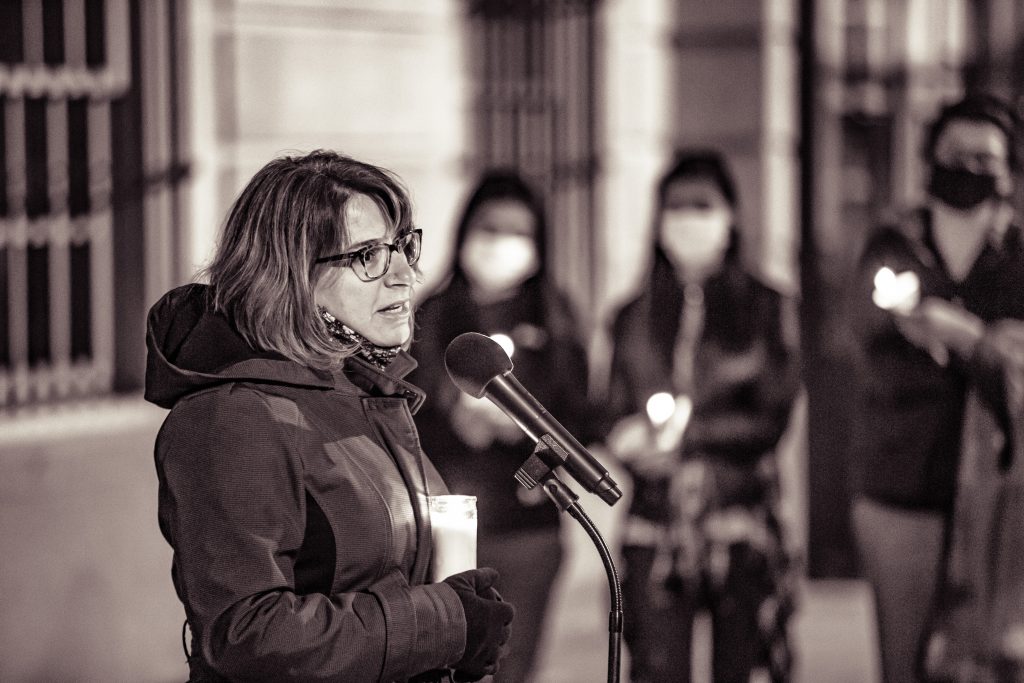
If you were in Providence on Saturday night, it’s possible you joined the vigil that was held at the Rhode Island Supreme Court. The Womxn Project HQ lit up the building with words “May Her Memory Be a Blessing.”
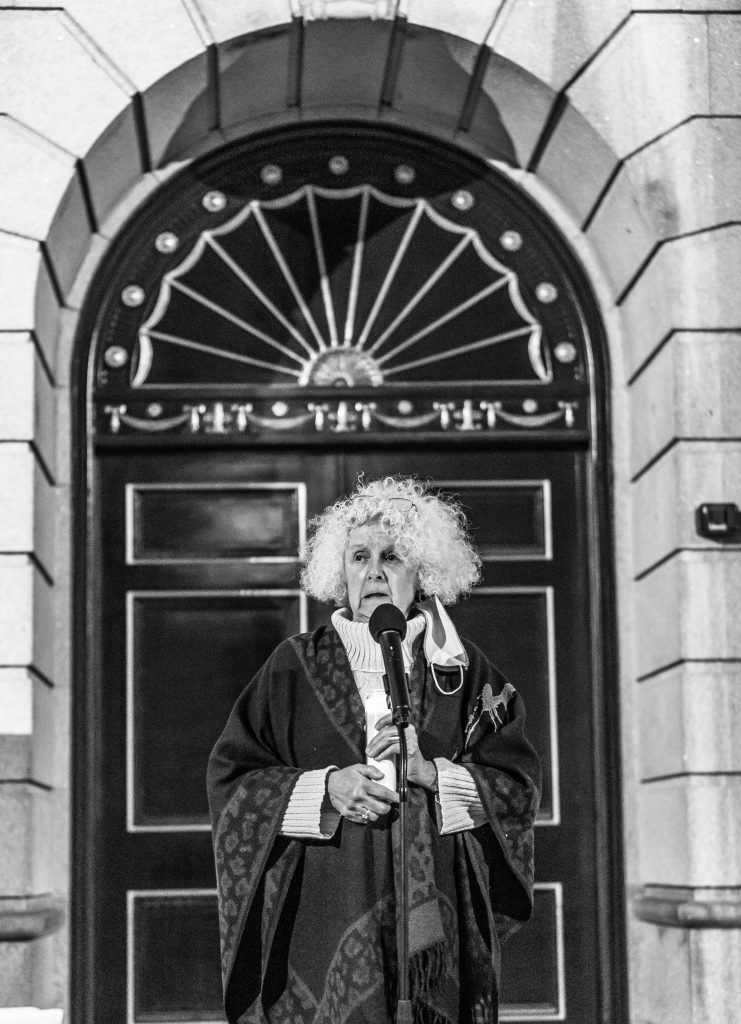
One of Justice Ginsburg’s most famous quotes was an answer to a question. When asked when there will be enough women on the Supreme Court, she would say–
”When there are nine.”
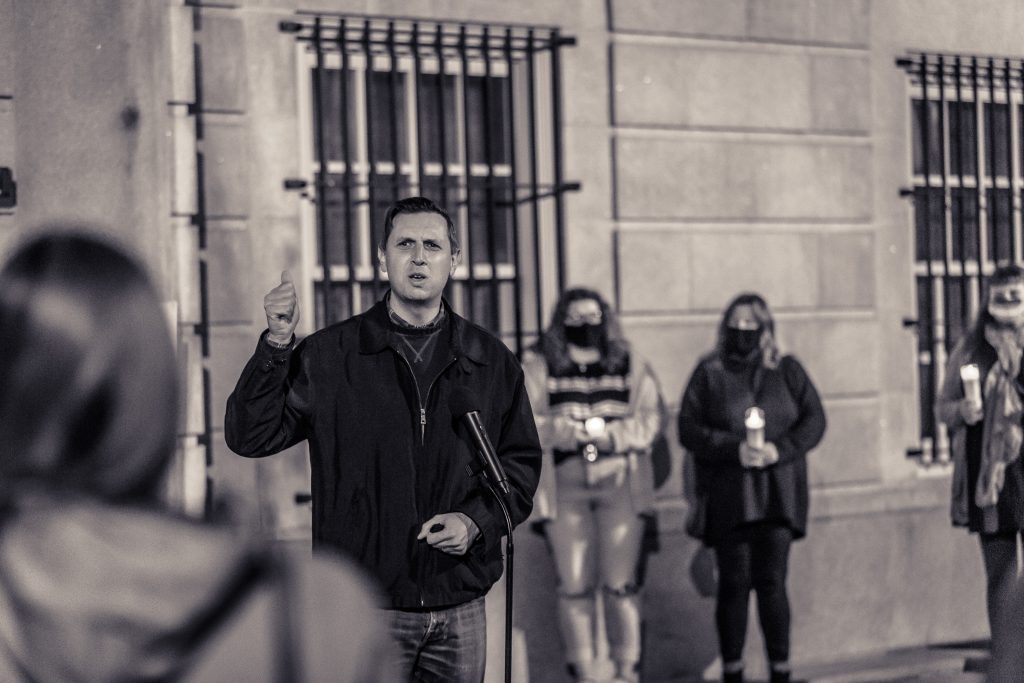
One woman at the vigil spoke about her first reaction to hearing the news by saying, “It was a punch to the gut. It’s– for many people, it’s our worst nightmare. So many people are already at a breaking point. This feels like — like it’s too much.”
I asked her if it feels hopeless.
“No, it doesn’t feel hopeless, because– She talked about the pendulum swinging, and that it would go too far one way, but that it would come back around to what’s right. You have to hope that those words are true. The pendulum will come back around.”
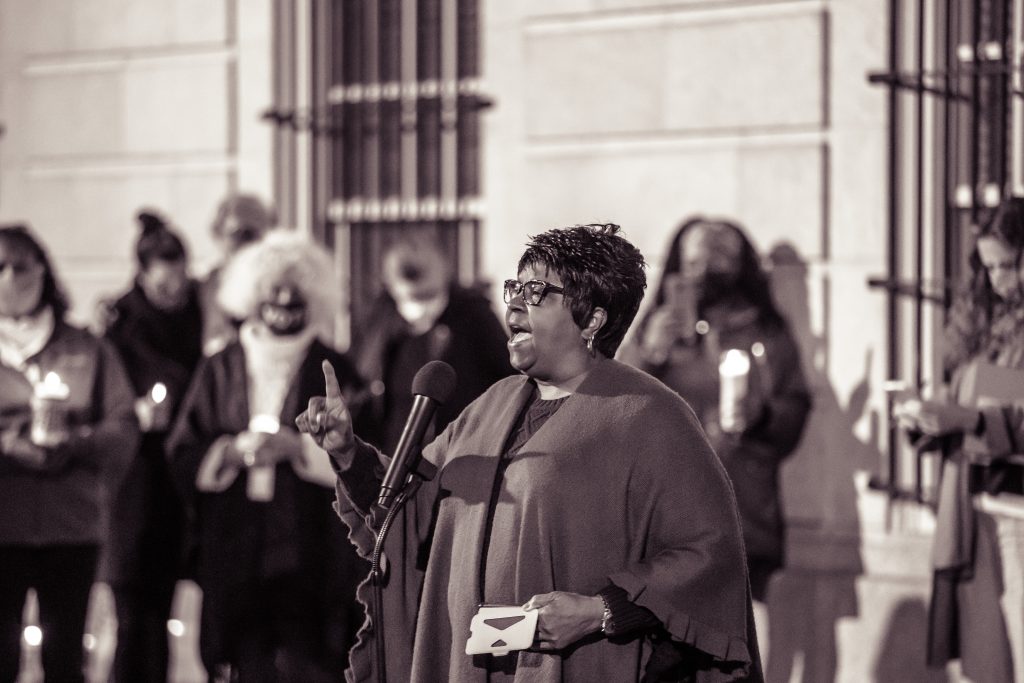
On Sunday morning, I reached out to a friend — a law student — who had spent the previous evening re-watching RBG.
“It was good to be reminded of what she accomplished in the face of all that adversity. I think we have to be inspired now. I think we put too much on her. This was a woman who was struggling to stay alive, because so much was resting on her shoulders. Even her last words were about trying to hold off losing the Court, and that’s already happened. The Conservatives already have a majority. We can’t put all that on one person. We never should have done that. We have to build something out of this, and we have to build it in her honor. That’s how I feel.”
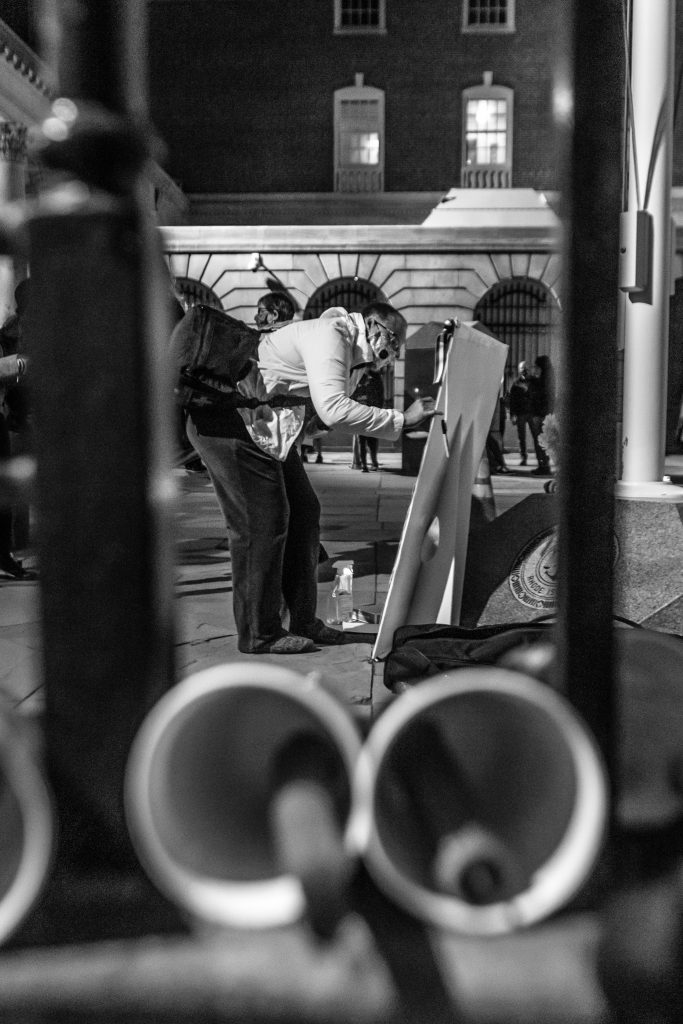
On Providence’s East Side right before the vigil on Saturday, I was meeting with a 15-year-old about an article I had planned to write about being back in school during the pandemic, but the conversation veered toward Justice Ginsburg, and it stayed there.
“What I think is crazy is that we still — as a society — we still think that you do everything important you’re going to do when you’re young. That if you’re going to be famous, you’re going to be famous when you’re young. She’s someone who was literally making history until her last day. That’s — I think that’s incredible.”
Earlier that day, while listening to NPR, a woman who had written a book on the Supreme Court began listing all the monumental events of Justice Ginsburg’s life and the station had to go to break before she could finish.
“I should mention,” the author said, interrupting the host about to cue up an ad, “those are things she accomplished before she was a Justice. All that — before her most notable accomplishment. Can you believe that?”
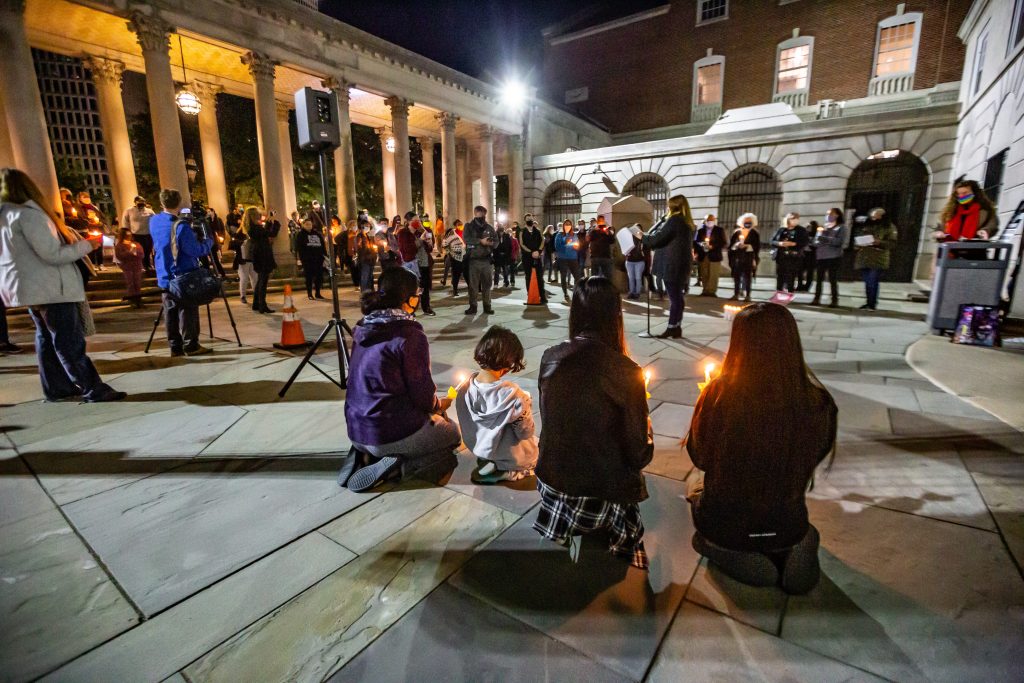
Two women at the vigil contacted me today because they didn’t want to give a quote last night. One said that while she had spent most of Friday night crying, by Saturday, she felt galvanized, and by Sunday morning, she felt strong. The other told me that she’s always watched politics from the sidelines, but now she plans on getting involved.
“I don’t see how I can’t. It’s past time. It’s past time for me to start doing the work.”
“This moment is not the time for despair,” Rep. Alexandra Ocasio-Cortez said on Instagram, in a live video that went viral almost immediately, “I got bags under my eyes. I know you got bags under your eyes. What we need to do is never give in.”
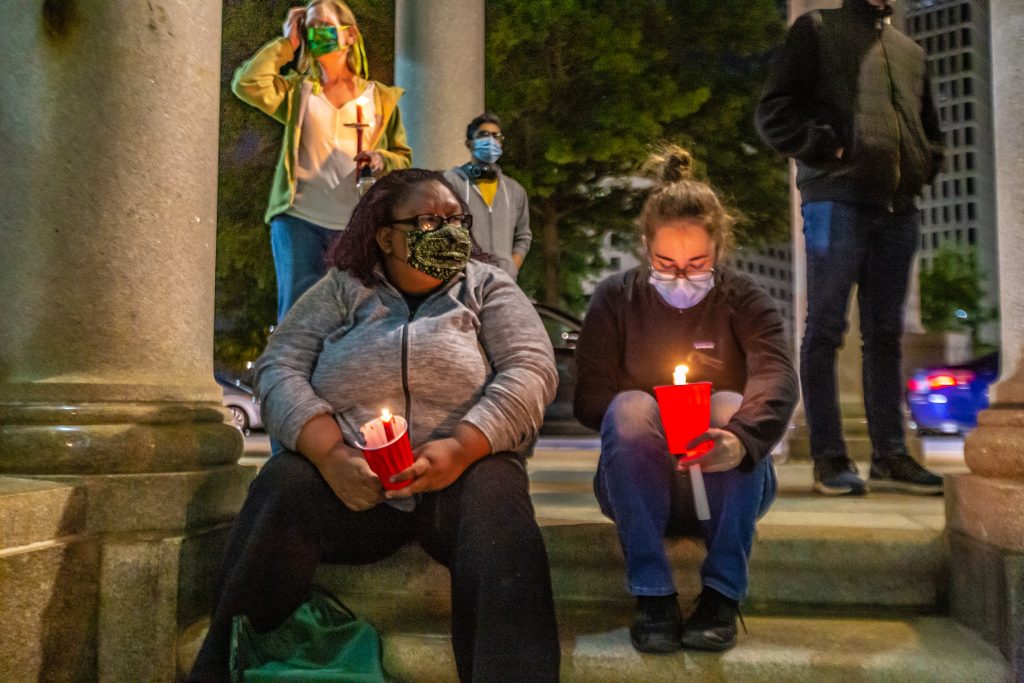
A friend went walking with me downtown and told me that the news made her think of other women she’s lost — some very dear to her.
“To me, you think of women from that generation. I’m in my 60s. I’ve had opportunities that my grandmother never had. You see progress being made and you wish your grandmother and your mother could be around to see it. You see bad things happen and you’re glad they’re not around. You worry for your daughter and your granddaughter. You also see them going after things and doing things that you never dreamed possible. It’s made me take stock in a way. None of us are going to be around forever, but look what this woman left behind. Look how she made a way for generations after her. I hope we don’t forget that. I know there are important things to talk about when it comes to who is going to replace her, but let’s be honest — Nobody is going to replace her. That’s the whole point.”
I always find the quiet after an event the most striking part. Whether it be a rally or a protest or a vigil. That moment when the last person or group of people lingers and then walks away creates a moment of solemnity that’s usually punctured by something mundane — a car driving by or someone yelling something off in the distance.
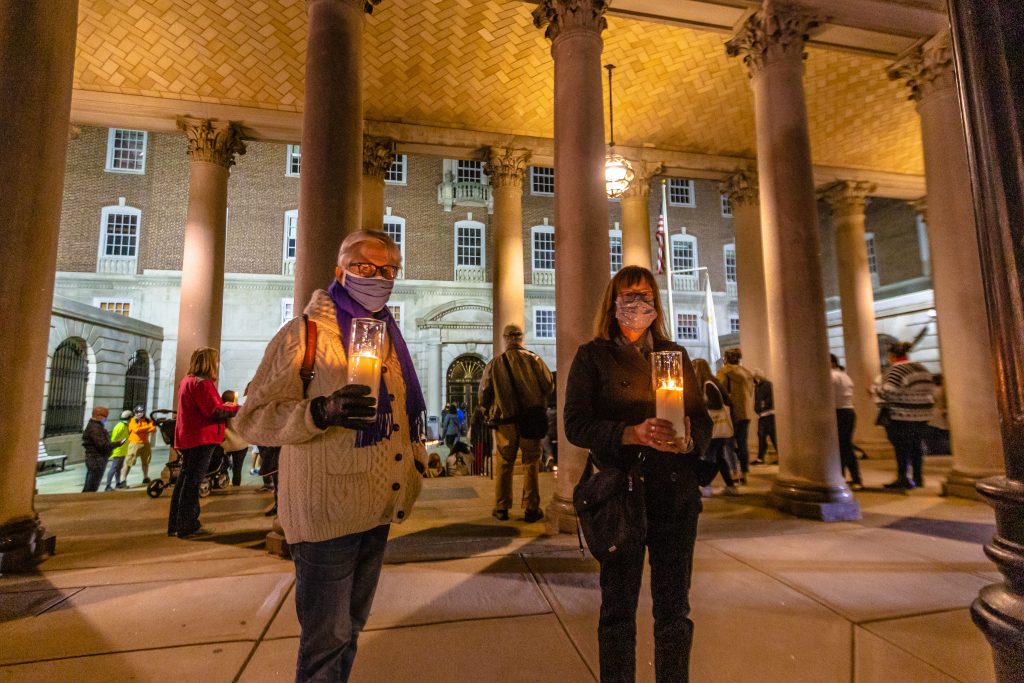
An hour after the vigil, I was sitting in a car on North Main Street speaking with a history teacher about how she would approach talking with her students on Monday.
“Well, I was already going to be emotional, because it’s been an emotional time dealing with doing classes online and having some in-person classes, but it’s made me think about everything I teach. How much time we spend on women. How much time we spend on Black history and what we teach about Black history and about women’s history. As someone who is Puerto Rican, I’ve thought for a long time about the parts we leave out and whether we’re doing justice to the right people and their, like you asked about, their legacies. It’s time to start doing those legacies justice.”
It’s difficult to separate the life of a political figure with their politics. To honor the person and not just their body of work. To stop yourself from peering into the vacuum they left behind and theorize about how it might be filled. Some might argue that talking about the future of law, and government, and our democracy, is exactly the way you’d honor Justice Ginsburg.
And by listening to opera.
“Fight for the things that you care about,” Justice Ginsburg once said, “but do it in a way that will lead others to join you.”
So the question is–
Who’s going to join the fight?


